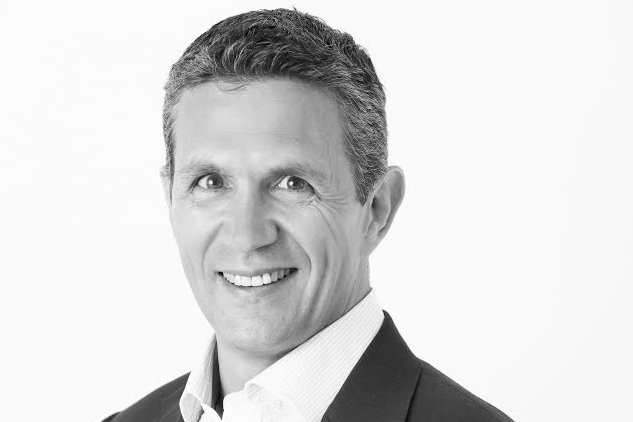For an organization that is expanding globally and needs data center services in multiple markets, it can seem as though the choice of partners is limited. While more than 1,200 companies currently provide global data center services, just three organizations have over $1bn revenue and only 19 have facilities across three continents or more.
Whilst some argue that choice isn’t particularly important - that one data center is just the same as another and that data center space is therefore a commodity - we believe that the ability to choose a partner which is able to meet a company’s unique needs is crucial. Data center providers vary in many ways - accreditations, space and power capacity, contractual flexibility, connectivity options and service levels and location - and it’s not an exaggeration to say that they can make or break a company’s ability to operate effectively.
But if the inflexibility of a global data center company, with standardized solutions in every location, isn’t for you, the alternative - seeking out independent providers in multiple regions - is often too time intensive to be viable. So how can companies move forward, ensuring they get a solution which best fits their needs?
Firstly - it shouldn’t be assumed that just because a company isn’t ‘global’ it can’t provide global services. In fact, a new breed of global players, which aren’t the typical big corporates, are promising to provide much deeper local expertise while maintaining the ability to operate on a global scale.
For us, this partnership model, made up of an alliance of local organizations, each leading the field in their region, is the answer for many. Local roots mean the data center provider knows the customer, business culture and regulations in every region enabling them to provide a much more nuanced approach. They will also have strong existing relationships with a variety of local carriers and have developed deep ecosystems. It is this local knowledge that enables these providers to work closely with their customers at a local level, whilst still benefiting from a global network.
And with a complete understanding of each other’s capabilities, strength and connectivity, alliance members can recommend the most appropriate data center to either extend a company’s global reach, or to form part of a business resilience plan. Access to professional services - design and implementation, hardware procurement and delivery - ultimately make data center moves much easier.
How to pick a partner
So, if choice is back on the table, how do organizations make informed decisions about their data center partner when doing business on a global scale? From our experience, there are several key factors which companies must prioritize - whether they pick a global provider or a smaller, bespoke, alliance.
1. What cost savings can be made?
Cost must be the top priority for any organization. A bespoke alliance reduces cost aspects of many elements by negotiating with their suppliers to ensure they can get discounts. In country, local knowledge and long standing supplier relationships of the alliance data centers can achieve further cost benefits, passing these on to customers.
2. How easy is it to do business?
We know that providers promote the simplicity of the homogenized global single contract or Managed Service Agreement (MSA). But we’d urge organizations to look closely at the small print. A business could be contracted with a data center in London, but that contract may also require sign off at an EMEA level and, if it’s part of a global account, then it will more than likely be reviewed at a global level too. This can add a lot of time, effort, resource and pain for the customer because they can’t move as quickly as they need to, diminishing the value of working with a single, global organization.
3. What disaster recovery procedures are in place?
The strategic importance of the data center puts disaster recovery firmly at the center of any organizations’ priorities. The savviest firms know that in the event of a disaster, the continued operations of their company depend on the ability to recover or replicate IT systems and data. This requirement is magnified when they’re doing business across multiple regions, and, so, it’s crucial ask important questions about resilience, reliability and disaster recovery - and be assured that your provider can cope should the worst happen.
4. How do you deal with local regulation?
Understanding local regulation is vital. And this is an area where a bespoke network might have the edge over a large global vendor. As an example, if the customer was an American organization on the west coast of the US that was worried about GDPR and was trying to buy from a provider in London, the local provider would have the knowledge, as they work daily with the laws and regulations. This enables the local data center provider to develop a consultative relationship, providing advice as well as delivery. Whilst the knowledge wouldn’t be devoid in a larger global provider, it would most likely require a knowledge transfer between different teams in order to provide this to the end customer.
There are many more questions to answer - for example, is the provider going the extra mile to ensure connectivity routes - but these basics will put a company on the right path to choosing a global data center provider.
We believe that working with the new breed of global alliance data center providers such as ST Telemedia means that organizations can get a very high quality service, often at a better price. Customers obtain both the benefit from the local perspective, as well as the all the other elements of working with a global provider with a global footprint.
For example, VIRTUS is able to offer local expertise and all the benefits discussed in this article in China, India and Singapore from a portfolio of over 250MW across 50 data centers. However, although our money is on the partnership model, even more important is that organizations now have choice. And with the data center increasingly vital to a company’s ability to run, to compete and even to innovate, being empowered to choose who runs your data center, and how, is absolutely crucial.
Darren Watkins is managing director of Virtus Data Centres



